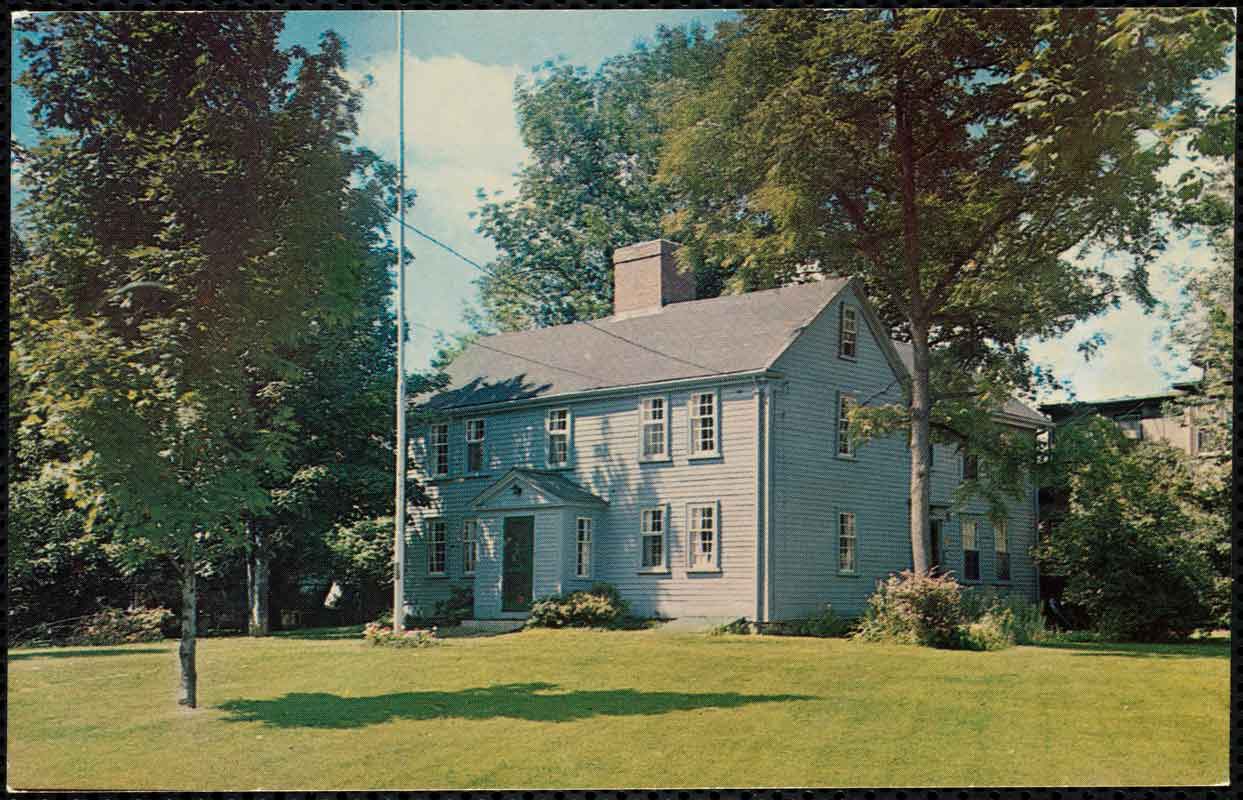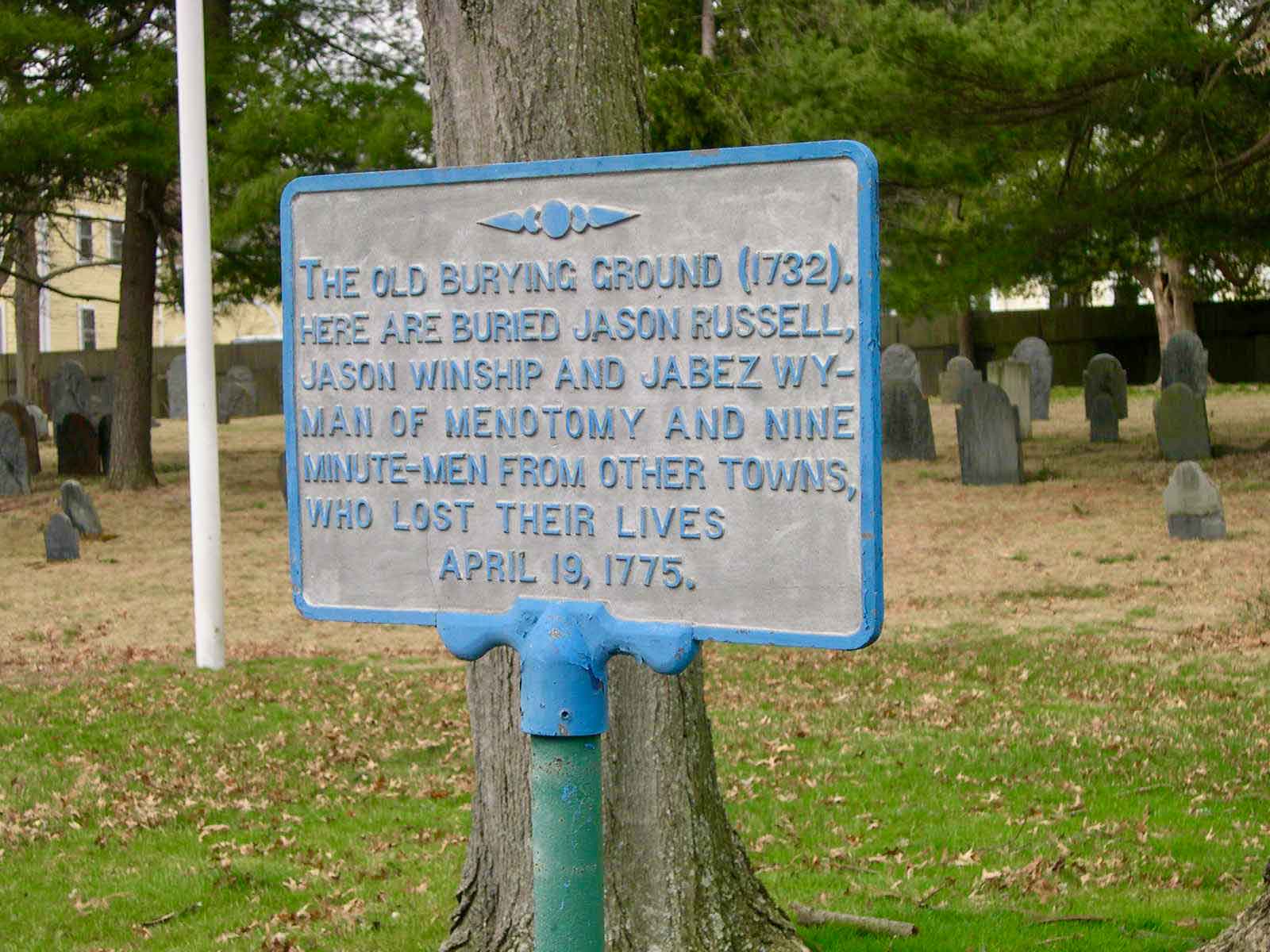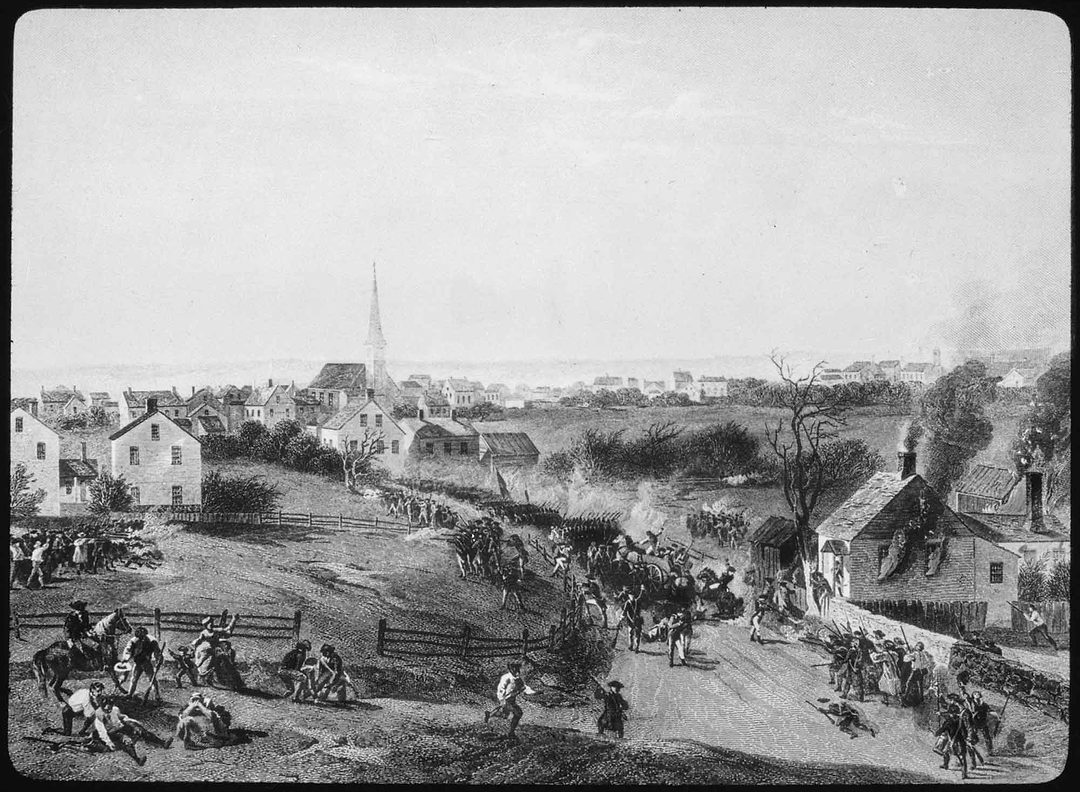 Residents of Concord are steeped in the lore of Patriots’ Day, April 19, and the militia activities in Lexington and Concord. But the Battle of Menotomy might need more explanation.
Residents of Concord are steeped in the lore of Patriots’ Day, April 19, and the militia activities in Lexington and Concord. But the Battle of Menotomy might need more explanation.
Menotomy was a village of about 400 farmers, millers, tavern keepers, and their families in 1775. Located in today’s Town of Arlington, Menotomy stretched along Massachusetts Avenue from “the foot of the rocks” near Lexington to Alewife Brook. Menotomy was a crossroads town where the Concord Road west crossed highways to all points: east to Boston and Charlestown; north to Medford, Reading, and Danvers; and south to Watertown and Dedham.
Paul Revere rode through the village just after midnight on April 19, 1775. Lt. Colonel Francis Smith’s force of 700 royal troops and marines followed the same route to Lexington. Lord Percy reported the houses of Menotomy “deserted” at midday as he marched through with over 1,000 more of His Majesty’s soldiers. Their mission: to rescue Smith from the colonials’ attacks on Battle Road and bring them all back, the same way, to Boston.
From about 4 p.m. to 7 p.m. on April 19, Percy’s combined command of 1,800 soldiers was encircled by 3,800 colonials; all the pursuers from Concord and 59 more companies of minutemen, who had raced to Menotomy. The Battle of Menotomy was the largest, longest, and bloodiest engagement of April 19. Forty of His Majesty’s troops were killed, and 25 colonials were lost.
The fighting was savage. Lord Percy had to fire his two cannons repeatedly to keep the road ahead clear of gathering militia. Flanking soldiers attacked house after house, desperate to suppress the colonials’ attack. An infantryman wrote in his diary, “hot fire from all sides…every wall lined, and every house filled with wretches, who never dared show their faces.” Royal Governor Thomas Gage called it, in his report to London, “a moving circle of fire” that “continued without intermission.” A fusilier wrote in his diary, “We were obliged to force almost every house…all that were found in the houses were put to death.”
Certainly, the provincial legislature of Massachusetts Bay saw the battle quite differently. They called it “barbarous devastation…almost beyond description…plundering and burning of dwelling houses…driving into the street women in childbed, killing old men in their houses unarmed.” These descriptions of atrocities come directly from the depositions given by Menotomy residents after the battle. Hannah Adams, wife of Deacon Joseph Adams, was rousted from her bed at bayonet point. She fled with her three-week-old daughter in her arms while the King’s soldiers looted the silver communion service and set fire to her home.
Benjamin and Rachel Cooper, taverners, testified that the regulars “fired more than a hundred bullets into the house where we dwell…” and that two of their guests, “aged gentlemen…all unarmed,” were murdered, “stabbed through in many places, their heads mauled, skulls broke, and their brains out on the floor…”

Jason Russell House
| Courtesy of the Arlington Historical SocietyVisitors to Arlington can walk through the very rooms where one of these close-quarter fights took place. Jason Russell and a detachment of Essex County men built a redoubt of wood and shingles in Russell’s orchard behind his house. As soon as they fired on Percy’s main force, flankers encircled them. Russell and eleven militiamen were killed “on the doorstep of his very home.” Other Essex men saved themselves by diving into Russell’s basement and firing their muskets back up the stairs at the redcoats pursuing them. The Arlington Historical Society offers tours of the Jason Russell house, and guides will point out the numerous bullet holes from musket fire in this 280-year-old home.
A little further down the road from the Jason Russell House is the monument to Samuel Whittemore, “then 80 years old” as the inscription reads. With pistols, muskets, and saber, Whittemore mounted a solo attack and killed three of the retreating infantry. He was “shot, bayonetted and left for dead; but recovered and lived to be 98 years of age.” When he died, his obituary was reprinted in newspapers throughout the new nation.
So, what is the significance of the Battle of Menotomy, fought in a small village on the edge of a global empire, on the first day of eight years of revolutionary war? The first lesson is the grievous extent to which His Majesty’s officers and ministers had underestimated the colonials. Following the battle, every report, every dispatch sent back to London, was full of the stories of the combined militias’ ferocious bravery. There would never be an easy solution, even by force of arms, to the unrest in the Province of Massachusetts Bay.
The second lesson would be the stories gathered in Boston and printed and published throughout the colonies: General Gage’s troops savagely murdering innocent farmers, committing barbarous atrocities, and pillaging Englishmen’s homes. It was a message of rebellion carried from New England to all the colonies: join us, or die.

Arlington, MA Old Burying Ground
| Courtesy of Freedom’s Way National Heritage AreaThirdly, we must examine these stories and look for the facts and the people who were left out of their customary retelling. A monument in Arlington Center commemorates “the Old Men of Menotomy” who ambushed and captured a convoy of wagons loaded with gunpowder and shot for Lord Percy’s troops. Their nickname is a misnomer, however, for while these men were exempt from mustering and turning out with the militia, it wasn’t because they were all too old. Their leader, David Lamson, was barred from serving with the militia because he was a person of color, a “mulatto” in the contemporary accounts. Yet it was his experience from his days fighting in the French and Indian wars that enabled him to plan and execute a perfect ambush. We need to write David Lamson and other soldiers of color, both free and enslaved, back into the stories of the battle.
Finally, we look to the fate of the militia themselves. After joining in battle in Menotomy, they broke with all precedent for minute companies, and instead of returning home, they stayed in the field. They besieged General Gage as one force. The Second Continental Congress had to accept, as the Massachusetts delegation argued, that a state of war existed between the colonies and the Crown. The Revolution had begun.


